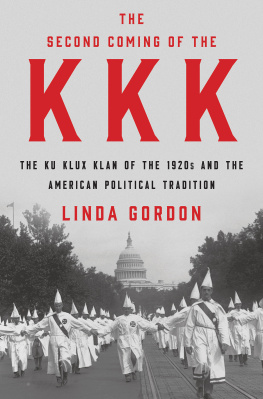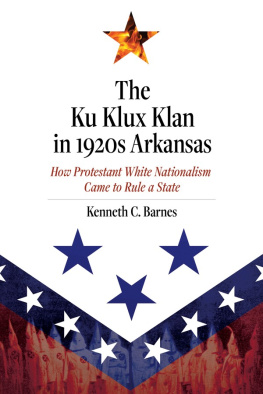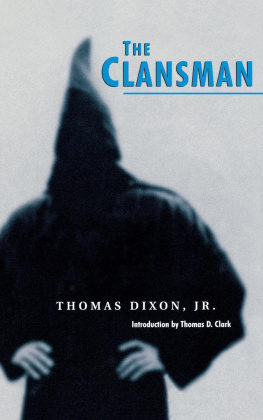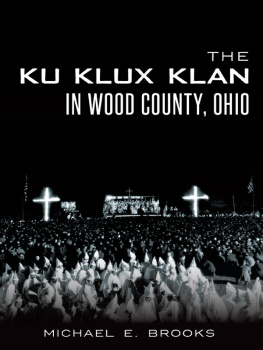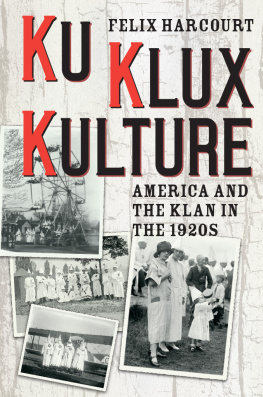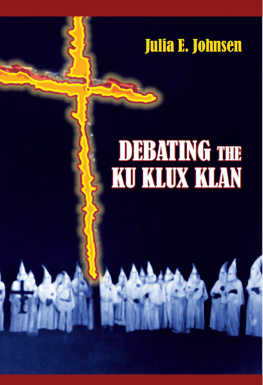
OTHER BOOKS BY LINDA GORDON
Feminism Unfinished:
A Short, Surprising History of American Womens Movements
(with Dorothy Sue Cobble and Astrid Henry)
Dorothea Lange: A Life Beyond Limits
Impounded: Dorothea Lange and the Censored Images of Japanese American Internment
(coedited with Gary Y. Okihiro)
The Moral Property of Women:
A History of Birth Control Politics in America
The Great Arizona Orphan Abduction
Pitied but Not Entitled:
Single Mothers and the History of Welfare
Heroes of Their Own Lives:
The Politics and History of Family Violence
Cossack Rebellions:
Social Turmoil in the Sixteenth-Century Ukraine

Frontispiece image: Photo/Chicago Tribune/TNS
Copyright 2017 by Linda Gordon
All rights reserved
First Edition
For information about permission to reproduce selections from this book, write to Permissions, Liveright Publishing Corporation, a division of W. W. Norton & Company, Inc., 500 Fifth Avenue, New York, NY 10110
For information about special discounts for bulk purchases, please contact W. W. Norton Special Sales at specialsales@wwnorton.com or 800-233-4830
Book design by Lovedog Studio
Production manager: Anna Oler
JACKET DESIGN BY STEVE ATTARDO JACKET PHOTOGRAPHS: (FRONT) BETTMANN / GETTY IMAGES; (BACK) KU KLUX KLAN
PARADE, DC 1926 (PHOTO) / UNIVERSAL HISTORY ACHIVE / UIG / BRIDGEMAN IMAGES
The Library of Congress has cataloged the printed edition as follows:
Names: Gordon, Linda, author.
Title: The second coming of the KKK : the Ku Klux Klan of the 1920s and the American political tradition / Linda Gordon.
Description: First edition. | New York, NY : Liveright Publishing Corporation, 2017. | Includes bibliographical references and index.
Identifiers: LCCN 2017037229 | ISBN 9781631493690 (hardcover)
Subjects: LCSH: Ku Klux Klan (1915 )History20th century. | RacismUnited StatesHistory20th century. | Hate groupsUnited StatesHistory20th century. | Political cultureUnited StatesHistory20th century. | United StatesRace relationsHistory20th century.
Classification: LCC HS2330.K63 G63 2017 | DDC 322.4/2097309042dc23
LC record available at https://lccn.loc.gov/2017037229
ISBN 978-1-63149-370-6 (e-book)
Liveright Publishing Corporation, 500 Fifth Avenue, New York, N.Y. 10110
www.wwnorton.com
W. W. Norton & Company Ltd., 15 Carlisle Street, London W1D 3BS
In memory of my friend, collaborator, and radical guru,
the late Ros Baxandall
And to my beloved partner, Allen Hunter
CONTENTS
In writing this book I was able to stand on the sturdy shoulders of many other scholars. Not only rigorous, they are also scholars who cared enough about freedom, justice, and our nation of immigrants to spend time studying something as unpleasant as the Ku Klux Klan. They understood that we Americans need a full and honest accounting of all our past, especially when it continues to shape our present. (But then, when doesnt it?)
The work of these scholars is cited repeatedly in the endnotes, but I want to offer here particular thanks to Kathleen Blee, David A. Horowitz, Allen Hunter, and Nancy MacLean. I am grateful also that I could rely on work by Charles Alexander, Kelly Baker, Betty Brenner, Newell Bringhurst, Dana Caldemeyer, David Chalmers, John Craig, Sarah Doherty, Glenn Feldman, Craig Fox, David J. Goldberg, Robert Alan Goldberg, Elizabeth Hatle, Thomas Heuterman, Kenneth Jackson, William Jenkins, Robert Johnston, Kelli Kerbawy, John T. Kneebone, Jeff LaLande, Elinor Langer, Shawn Lay, Rory McVeigh, Richard Melching, Tim Messer-Kruse, Leonard Moore, Thomas Pegram, Tom Rice, Mark Richard, Chris Rhomberg, Allen Safianow, Michael Schuyler, Wendy Thorson, Eckard Toy, William Trollinger Jr., Todd Tucker, Frances Valenti, and Wyn Wade. These people did the hard work and hard thinking that guided me. I hope I have done them justice.
I want also to thank the Radcliffe Institute for Advanced Study and the NYU Graduate School for giving me time that helped me write this book, and the NYU History Department for providing such a stimulating and supportive place to work.
Several scholar friends also did me the favor of reading parts of this text. Much gratitude to Kathleen Blee, Allen Hunter, Rosie Hunter, Michael Kazin, Nancy MacLean, and Charles Postel. Whatever mistakes remain, despite their best efforts, are mine alone.
I am appreciative of the many colleagues, friends, and acquaintances with whom I have discussed right-wing populism, social movements, democracy, and feminism. I am particularly indebted to the late Ros Baxandall, as well as to Suzanne Desan, Sara Evans, Susan Stanford Friedman, Michael Kazin, Linda Kerber, Alice Kessler-Harris, Elinor Langer, Judith Walzer Leavitt, Elaine Tyler May, Michele Mitchell, Maria Montoya, Erika Munk, Andrew Needham, Molly Nolan, Guy Ortolano, Ros Petchesky, Frances Fox Piven, Katha Pollitt, Charles Postel, Liz Schneider, Barbara Weinstein, Judith Vichniac, and Marilyn Young. Please do not blame any of them for whatever errors can be found here.
I continue to admire and be daunted by the energy, skill, and indomitable spirit of my longtime agent, Charlotte Sheedy. She took me on as a client in the 1970s, a time when publishers were leery of feminist books. Her sharp intelligence, ethical commitment, and passion for good books are inspiring. Her friendship over these many decades has been a blessing.
Charlotte also brought me the gift of a superb and learned editor, Robert Weil of Norton. He is an intellectual of great perspicacity and integrity. His enormous capacity for work and superb skills as a reader and editor have made several of my books much better. He pushed me to finish this manuscript quickly, for very good reason, and then worked overtime to read every word of it; an editor of a sort that is rare these days, he offered me not only textual editing but substantive historical suggestions. I could not fulfill all his hopes, but the book is vastly better than it would have been without him. I am deeply grateful, Bob.
Several others helped me greatly, reconfirming why I like working with W. W. Norton. It takes a team to publish a book. Because I hurried to produce this one, and finished it while teaching, Norton staff had to put up with my occasional inattentiveness and muddled queries. Particular thanks to Marie Pantojan, who patiently and efficiently answered questions, fielded requests, and shepherded the manuscript with care. My masterful assistant in gathering photographs, Elyse Rieder, not only coped with my disorganized record-keeping and indecisiveness but also offered sage advice. I benefited from the work of a fine copy editor, India Cooper. Not content merely to catch my errors and omissions, she found substantive mistakes and then did the research necessary to correct them. Her rephrasings often made my text more graceful. I am sure they will all be relieved when this book is finally in print. I am very grateful to everyone at Norton, and hope that they will be able to take some pride in the final product.
This book began as a chapter of a larger work in progress on twentieth-century American social movements. Expanding that chapter into a book shortly before and just after the 2016 election reconfirmed my sense of the importance of understanding movements like the Klan. Readers may find here similarities with some contemporary political movements, and may note the continuing influence of Klannish impulses and ideology.
Kathleen Blee wrote that scholars should not use right-wing groups as a foil against which we can define ourselves as more virtuous. I have tried, no doubt imperfectly, to live up to that admonition.
Next page
